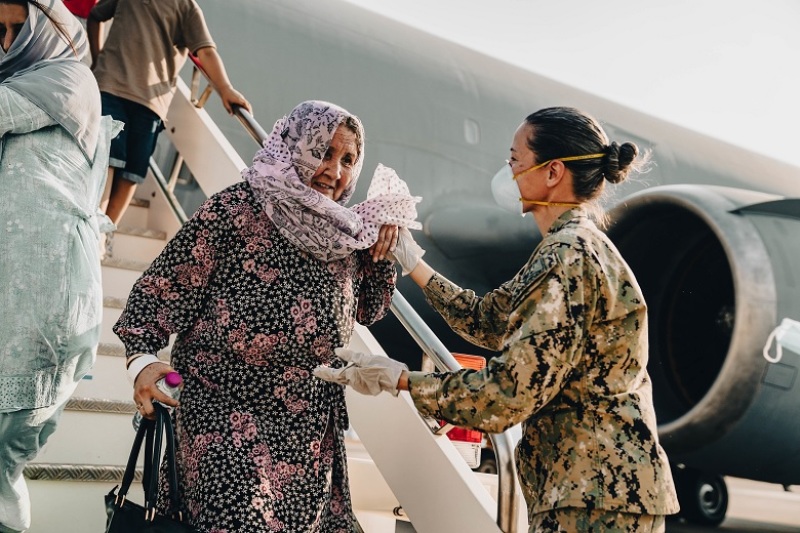
When the Taliban militant forces took over Kabul and the rest of Afghanistan earlier this month, its leaders presented themselves in a way that distanced the group from what it was known to be in the 1990s: brutal and abusive.
Today's Taliban claims to respect human rights, especially women's, who were at the time denied education and forced to be second class citizens to Afghan men. But Taliban spokesman Zabiullah Mujahid recently warned women to stay safe inside their homes because they were "worried" that some of their forces "have not been yet trained very well, may mistreat women."
The Family Research Council reported that according to Mujahid, Afghan women today "will be given all their rights within Sharia 'the lslamic laws.'" But many are pessimistic that inequality between women and men will prevail among Afghans under the Taliban rule, which previously prohibited women from working outside their homes, leaving their homes without a male guardian, or even accessing education.
In other words, the Taliban takeover means a step back for women's rights in Afghanistan. As the FRC reported, "When Afghanistan quickly fell to the Taliban, these women's dreams were crushed."
Moreover, women who are not used to working outside their homes will be at higher risk for being persecuted or abused by the Taliban under the Sharia law. Author Gayle Tzemach Lemmon spoke to a young woman who visited a makeshift camp in Kabul full of refugees fleeing Taliban fighters in Northern Afghanistan, who told her, "Girls who had duty out of house [are] in greater risk, because [the Taliban] recognized them and then they punish, they ask you are Muslim why are you working out of you[r] home."
Niloofar Rahmani, who became the first female Afghan air force pilot, is also concerned about women who served in the Afghan Air Force, because she herself has been targeted by the Taliban. She said, "They wanted to kill me just for what I have done, so I know what [Afghan women] are going through."
Some Afghan women are blaming the U.S. for the chaos that ensued after the Biden administration failed to properly evacuate people before the U.S. troops left Afghanistan. Shirin Tabriq, a teacher, is the second wife of a former Afghan government official who fled to Pakistan in February. She told Japan Times, "The Americans have insulted each Afghan. I come from a respectable family...but to live on [the] streets for 5 nights made me feel like I am begging people who have no respect for women and children."
On Sunday, about 200 people from the nonprofit Vital Voices Global Partnership and the Georgetown Institute for Women, Peace and Security and Women for Women International came together to call upon the Biden administration to prioritize the evacuation of women in Afghanistan amidst the country's fall into the hands of the Taliban, the Washington Post reported.
Afghan activist Noorjahan Akbar was among the protesters who highlighted the plight of female Afghan professionals who helped rebuild Afghanistan during the U.S.' 20-year nation-building operations in the country.



























